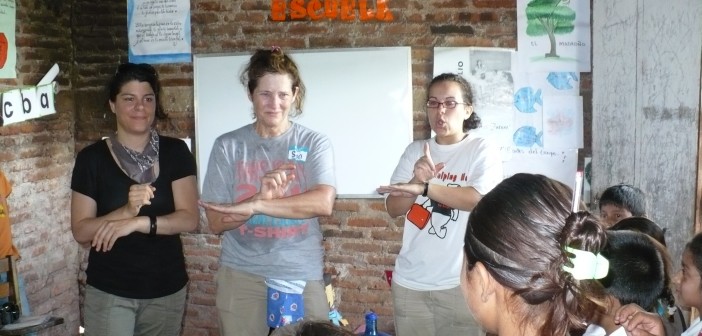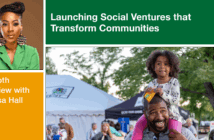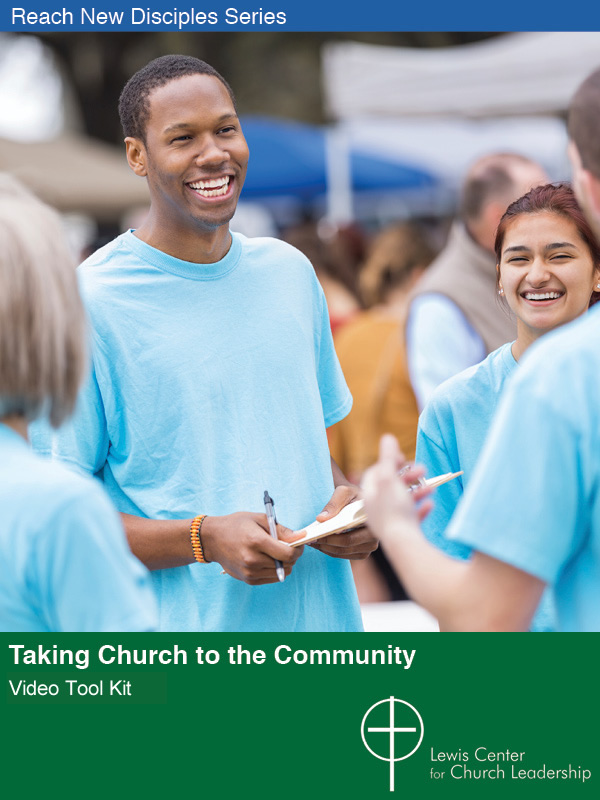There is no single “right” way to do a mission trip. What works depends very much on the goals of the congregations and participants, the strengths and concerns of the host community, and the context of each mission group and each trip. But after several years of talking to short-term mission participants, reading scholarly accounts of the short-term mission phenomenon, and going on mission trips myself, I have found that some conditions and practices seem to support better mission trips — ones that best contribute to alleviating conditions of poverty and to creating genuine relationships between communities.
Volunteer service is a manifestation of compassion and an act of concern for others, and a way to learn and grow.
Establish Long-Term Relationships
Although short-term mission is, by its very definition, limited in duration, it is most effective in the context of a long-term relationship. This can be achieved in a number of different ways — through a direct partnership between congregations or a sister-parish arrangement, by working with a faith-based or nongovernmental organization with a long-term presence in a community, or through one-time participation in a longer-term denominational program that links congregations globally. Even in the case of a natural disaster or other emergency, when a congregation may feel called to send aid and volunteers to a region in which it does not have any existing relationships, this aid is much more effective if it is offered through an existing organization with an established presence “on the ground.”
Choosing a location, going back repeatedly, and allowing a relationship to develop makes the biggest impact and has additional practical benefits as well. Working through a long-term partner helps to ensure a smooth experience for travelers and keeps surprises — and the stress of unanticipated circumstances — to a minimum. Visiting the same location repeatedly may also make the trip seem less like a tourist jaunt.
Reflecting on the Experience
Mission trips are more effective, in a host of different ways, when participants are engaged in examining the purpose of their experience not just during the trip but also before and after the trip. Orientation and debriefing can help to provide participants with a space to reflect on their personal and spiritual development, the meanings that the experience carries for them, and a sense that their involvement in a mission trip can enrich their “ordinary” life. The opportunity to contextualize the short-term mission experience through reflection before and after an actual trip can be another incentive to conduct a short-term mission within a long-term partnership or stable relationship with a host community or organization.
Projects that Make a Difference
Channeling service through effective development projects, ones that have proven themselves to make a difference in the lives of people who are economically disadvantaged, puts the time and resources of short-term mission to their best use. The best projects begin with planners seeking out and listening to the opinions of host partners. Good projects also happen when planners shift as much control as possible to individuals and groups in the host community. They build on strengths — the strengths of the host community, the skills and talents of volunteer participants, and the resources that are available. Focusing on strengths and available resources shifts the ways in which participants think about a “poor” community, pointing out its advantages rather than simply its deficits. It also can make projects more sustainable if they are less reliant on outside support. In order to be most effective, outside groups examine charity, development, and social justice and work toward creating projects that address the causes and not just the symptoms.
Understanding the Role of Culture
Culture is not just the clothes one wears or the music one listens to, but it refers to more fundamental patterns of thought and behavior through which people understand the world and one another. Short-term mission explicitly creates a framework for interaction between people from different cultures. But participants have a tendency to collapse cultural difference, seeing “the poor” as interchangeable or as homogenous. This tendency is an obstacle to cultural understanding as well as a barrier to the creation of authentic relationship across cultures. Discussing culture and cultural difference is one tool to avoid this pitfall. Investing time to learn about the political, historical, and economic context of the host culture provides participants with a better understanding of the significance of the work they do. Learning the language of the host culture, even at a rudimentary level, can lower barriers and facilitates more interaction.
Making a Difference
Short-term mission, at its best, is a way of recognizing and appreciating human dignity. Through service, participants find new meaning in their own lives and reflect on their relationships with others. Through the encounter with poverty, they experience the effects of social injustice and inequality. Through developing relationships, they learn the stories of others and gain a perspective on our shared humanity. Their volunteer service is a manifestation of compassion and an act of concern for others, and a way to learn and grow. It has the potential to transform not just those who are served, but also those who serve, in ways that can make a genuine difference in the world.
This article is adapted from Laurie’s book Making a Difference in a Globalized World (Rowman & Littlefield, 2014). Used by permission. All rights reserved. The book is available through Amazon or Cokesbury.
Related Resources:
- Eight Reasons I Was Wrong About Short-Term Mission Trips by Rich Birch
- Helping a Congregation Connect to Mission by Tom Berlin







